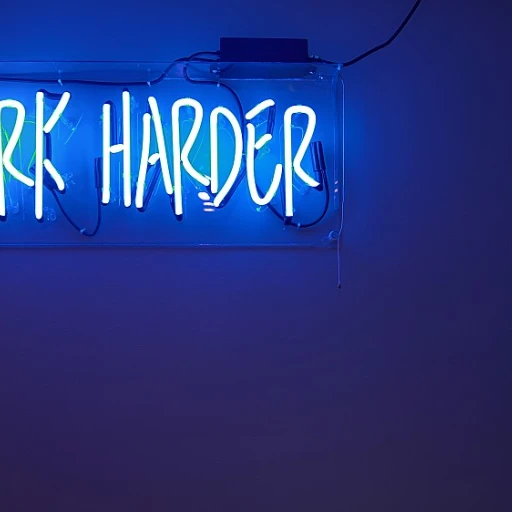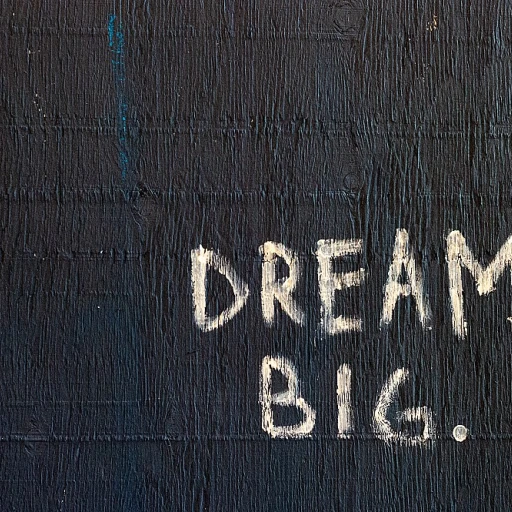
Understanding the Essence of Mentoring Rituals
Unveiling the Core of Mentoring Rituals
To truly grasp the art of effective mentoring, one must first understand the essence of mentoring rituals. Often perceived as a structured element within mentoring programs, these rituals serve as consistent practices that guide both mentor and mentee through their professional journey. The key lies in creating rituals that are purposeful and contribute to the broader goals of professional development and personal growth. Mentoring rituals are not just about routine sessions or scheduled meetings. In fact, they encompass a broader spectrum of activities aimed at fostering a supportive environment. Essential practices like a courage ritual can help boost a mentee's confidence, while activities shared on platforms like LinkedIn allow for public acknowledgment of milestones. These rituals help navigate the complex landscape of professional growth. To get a comprehensive understanding on structuring these rituals, consider reading more about the inside-out curriculum for professional mentoring. This link offers deep insights into crafting rituals that align with both mentor and mentee aspirations. Successful mentoring rituals also emphasize building a sense of belonging within the mentee. This requires thoughtful integration of such rituals into the work life fabric of an individual. Support from mentor coaches can amplify this process, as they bring in expertise that mentors alone might not possess. Moreover, mentors help in maintaining time structures that optimize each mentoring session. In essence, mentoring rituals are designed to be a beacon of guidance. They harness the collective insights of mentors and mentees, promoting a progressive mentorship ethos in professional settings. This exploration will set the stage for identifying the key components that shape successful mentoring rituals.Key Components of a Successful Mentoring Ritual
Core Elements to Build Effective Mentoring Practices
An effective mentoring ritual is the cornerstone of any successful professional mentorship program. To achieve this, several key components should be integrated into a mentoring plan to ensure both mentors and mentees derive the most benefits.
At the heart of a successful mentoring practice lies active engagement. Mentors and mentees should establish a regular cadence for sessions, enabling them to develop a consistent rhythm in their interactions. This regularity is crucial, as it fosters a strong sense of belonging and commitment to the process.
- Clear Objectives: Begin by setting clear and achievable goals. By defining expectations, both parties can focus on mutual growth, whether it's developing leadership skills or finding ways to balance work life more effectively.
- Sufficient Preparation: Each session should be adequately prepared for to help people, either by outlining questions or topics to address. This preparation ensures that time spent is productive and focused on the areas that require the most attention.
- Feedback Loop: Incorporating continuous feedback within the mentorship program, where feedback is shared bi-directionally, often helps in refining the process and achieving the best outcomes.
A successful mentoring ritual also involves the privacy policy of the mentoring organization, ensuring that conversations between mentors and mentees remain confidential, fostering trust and openness.
Creating a dynamic that fosters courage and open dialogue is vital. Encouraging mentees to question, explore, and even challenge ideas propels innovation and growth.
A recommended strategy includes the implementation of a comprehensive curriculum for professional mentoring. This curriculum should align with the objectives, providing a structured framework that guides the mentor-mentee interactions over time.
Social media platforms like LinkedIn can serve as a valuable tool, offering mentors and mentees a resource for networking and support. Engaging with groups related to national mentoring initiatives can provide participants with fresh perspectives and strategies.
Ultimately, these core elements form the bedrock of an impactful mentoring ritual, paving the way for meaningful growth and development. They help to cultivate environments where both professionals and aspiring leaders can thrive, with support from their designated mentor or coach.
Tailoring Mentoring Rituals to Individual Needs
Customizing Mentoring Rituals to Suit Personal Paths
When it comes to crafting effective mentoring rituals, personalization stands as a pivotal component. Each mentor and mentee brings their unique set of experiences, aspirations, and challenges to the table, making it imperative for rituals to be adaptable. Tailoring these sessions to suit individual needs can significantly enhance the efficacy of the mentoring process.
First, it's essential to recognize the personal and professional goals of both the mentor and the mentee. This understanding lays the groundwork for a program that not only fosters growth but also ensures a sense of belonging. Whether you're a high school student exploring career paths or a professional looking to refine your leadership skills, your mentorship experience will be richer if the rituals align with your unique circumstances.
- Flexibility in Scheduling: Given the busy work-life balance many face, scheduling needs to be flexible yet consistent. A ritual that fits naturally into daily life, like a regular coffee catch-up or a monthly review session, helps maintain momentum without causing undue stress.
- Defining Clear Outcomes: Each mentoring session should have a clear objective, whether it's to develop specific skills or to provide support and guidance. This focus ensures time is used effectively and progress is measurable.
- Incorporating Feedback: Regular feedback from the mentee helps refine the approach, ensuring that sessions will continue to meet evolving needs. It’s crucial for the mentor to listen actively and adjust strategies as necessary.
- Privacy Policy Awareness: Respect for confidentiality strengthens the trust between mentors and mentees. Adhering to a clear privacy policy limits distractions and keeps conversations open and honest.
Mentors should also consider the rituals that bring value to their mentees. For instance, incorporating a courage ritual can embolden mentees to take risks and embrace new challenges in their professional journeys. Such rituals encourage mentees to envision the best version of themselves, fostering growth and resilience.
To explore strategies for customizing mentoring rituals to align with these unique needs, visit this resource on effective strategies.
Overcoming Challenges in Mentoring Rituals
Addressing Common Mentoring Hurdles
When implementing mentoring rituals, overcoming challenges is a crucial aspect of ensuring long-term success. It’s not uncommon to encounter obstacles in both establishing and maintaining effective mentoring rituals, but addressing them proactively can enhance the experience for both mentors and mentees. One of the key challenges is time management. The busy schedules of mentors and mentees often lead to conflicts, making it difficult to find suitable times for sessions. A strategic approach to scheduling can mitigate this issue. By agreeing on a regular time slot that suits both parties from the outset, the likelihood of skipping sessions due to time conflicts is reduced significantly. Additionally, utilizing digital tools for scheduling can offer more flexibility and help coordinate across different time zones, especially for those engaged in global mentorship programs. Privacy concerns can also pose a hindrance in forming strong mentoring relationships. It is vital to establish trust and set clear boundaries regarding what can be shared between mentor and mentee. A well-articulated privacy policy will help navigate these concerns and create a safe space for open dialogue. Furthermore, diversity and a sense of belonging play a critical role in mentorship. Ensuring inclusive participation means recognizing and acknowledging individual differences in background, culture, and experiences. Acknowledging these differences within a mentorship program will help create an environment where all mentees feel valued and understood. Resistance to change is another stumbling block in mentoring rituals. It is often human nature to adhere to familiar patterns, but fostering a culture that encourages change and adaptability can profoundly elevate the mentorship experience. Garnering support from leadership in advocating for these changes can also make a significant difference. In conclusion, overcoming challenges in mentoring rituals requires a thoughtful blend of strategic planning, establishing trust, encouraging inclusivity, and fostering adaptability. By proactively addressing these common hurdles, both mentors and mentees can truly benefit from a flourishing mentoring journey.Measuring the Impact of Mentoring Rituals
Evaluating Mentoring Rituals for Impactful Growth
Measuring the impact of mentoring rituals is crucial for both mentors and mentees to ensure the time and effort invested results in significant professional growth. Understanding what works and making data-driven adjustments are key to successful mentorship.- Identify Key Metrics: Begin by pinpointing which aspects of growth you aim to measure. Consider aspects such as the mentee's confidence, skills development, and career progression. Incorporating voice-of-the-mentee feedback could be insightful, leveraging platforms like LinkedIn to see how individuals are positioning their newly acquired skills and achievements.
- Routine Feedback Sessions: Regularly scheduled sessions will provide consistent opportunities to gauge progress. These interactions can also help the mentee to voice any concerns or suggestions for the mentorship program.
- Quantitative and Qualitative Analysis: Combine surveys and self-assessment tools to gather data. However, don't ignore qualitative insights. Observations and narratives about the mentee's journey can provide depth beyond numbers.
- Iterate and Adapt: Be prepared to refine rituals based on findings. If certain rituals aren't yielding expected results, adjust them to better fit the individual or team learning objectives.
- Celebrate Milestones: Acknowledge achievements, no matter how small, to keep motivation high. These celebrations can foster a sense of belonging and help validate the mentoring relationship.
Best Practices for Sustaining Mentoring Rituals
Maintaining the Continuity of Professional Mentoring Rituals
Sustaining mentoring rituals in the professional world requires careful planning and effective strategies. It's about creating a nurturing environment where both mentors and mentees can thrive, ensuring that the time and effort invested yield long-term benefits. 1. Establish Clear Objectives- Start by identifying what each session will cover and set clear, achievable goals for your mentoring or coaching program.
- This clarity helps both mentor and mentee to prepare and approach each session with a purpose.
- Mentees often need help navigating the complexities of professional life; timely support and guidance from a mentor or coach are essential.
- Arrange regular check-ins and encourage open communication to address any issues that may arise during mentorship.
- Mentoring should adapt to the changing needs of the mentee, allowing for flexibility in the structure of rituals.
- Stay open to modifying schedules and meeting formats, whether it's through in-person sessions or online platforms like LinkedIn.
- Mentorship rituals can foster a strong sense of community and belonging within the team or organization.
- Organize group activities or courage rituals to deepen connections and promote a collaborative culture.
- Soliciting feedback from both parties helps in refining mentoring sessions. This will help in evolving rituals to better serve everyone involved.
- Consider anonymous surveys or open conversations as methods to receive constructive feedback.
- Support each other's growth beyond the mentoring program by fostering a culture of lifelong learning.
- This can involve recommending resources, such as online courses or books, that align with personal and professional development goals.













